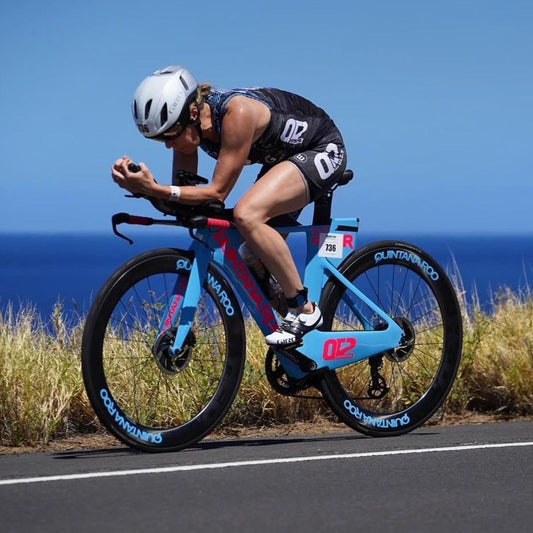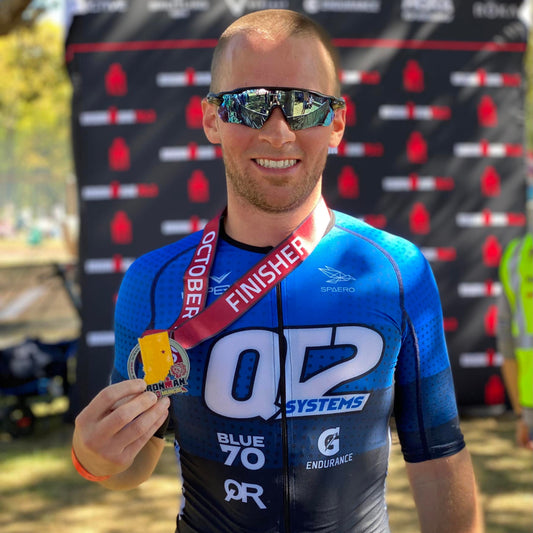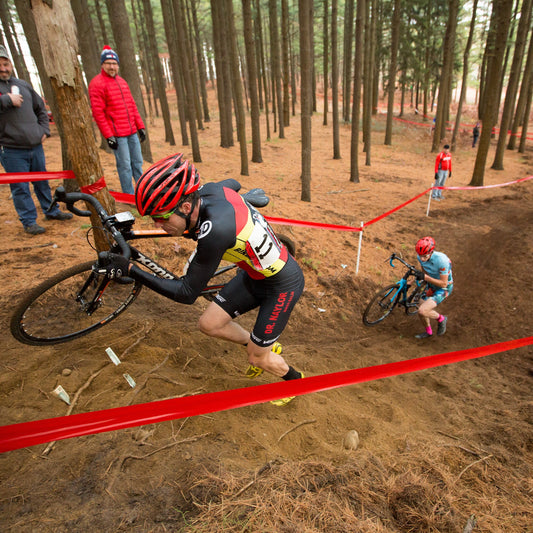Written By Coach Jennie Hansen
At the end of sixth grade, I ran a decent gym class mile, by 11-year-old standards. A few weeks later, in order to gauge interest in modified sports the following fall, the gym teachers set out sheets of paper for each sport, where we could pen our names if we were considering going out for the team. Because of that mile, my gym teacher encouraged me to sign up for cross country. I really didn’t even know what that entailed, but I wrote my name down on the paper anyways. But, like any mildly athletic mid-90’s tween, I spent the summer playing travel soccer and figured that I’d try out for the modified school team that fall. Then, a couple of weeks before fall sports tryouts started, I received a handwritten letter from the cross country coach, introducing himself and saying that he hoped I’d still consider cross country. He sounds nice, I thought, particularly after some negative, impersonal experiences with overzealous youth sports coaches on my soccer team that summer. My mom called the school, and we switched my intended sport that fall to cross country. Over the next six years of middle and high school, that coach’s support would foster a love of running and camaraderie among myself and my teammates that almost 30 years later has shaped my life.
By “shaping my life”, I mean that I went on to college and post-collegiate running, found triathlon, raced pro for a dozen years, have 25 full Ironman and countless 70.3 finishes under my belt, and continue to devote a significant amount of time and energy to training and racing. Driven by my love of running, I also graduated at the top of my undergrad exercise science and doctorate level physical therapy programs, worked 14 years of clinical PT largely with runners and triathletes, and now coach full-time. I say this not to brag about my resume, but to point out that I have the knowledge base to figure out a triathlon training program without outside assistance-yet, throughout this entire time, I’ve been coached, and, despite being asked sometimes why I still am, I consider this to be the most worthwhile investment I could make in triathlon. In a world where AI can spit out workouts in seconds and cheaper online training plans are easy to access, what, then, are the benefits of a 1:1 coach? Why do I still bother? The reasons are numerous, but these aspects listed below continue to be invaluable to me, no matter how deep I get into this triathlon.
Overseeing the 10000 foot view
Like many others, when I’m deep within the trees of life and day-to-day training, I’m generally neglecting taking a step back and looking at the forest. If it was up to me, I’d probably(/definitely) get somewhat overzealous with wanting to race all of the things and unrealistic expectations. Also, when managing a full athlete load of my own (really, insert any job here), the last thing I really want to do is have to put too much thought into structuring my own training across not just a week, but a season (and more). Having a coach to oversee the 10000 foot view for me and to put together all of the pieces-races, periodization, day-to-day training-just makes life easier, and my season plan, well, more reasonable than what I’d be tempted to do on my own.
Accounting for individual differences
Coaching is both a science and an art. Pre-packaged or AI-generated programs are decent at the science part, but missing the art part. While yes, training principles are training principles and zones based on percentages of thresholds are applicable to most on a population level, outliers and individual physiological variations exist. I’m always double-checking built workouts in TrainingPeaks, tweaking percentages and powers and paces as needed to make sure the intended purpose is met for any given athlete. More importantly, life stressors play a huge role in what ultimately makes sense for any given athlete. Just because two hours of training can theoretically be squeezed in before that big work presentation doesn’t mean that they should. These sorts of nuances and adjustments aren’t captured in generic training plans, and the oversight and wisdom to adjust and deal with them is a huge asset of a coach.
Bias challenging and adjusting for the season of life
I’ll be the first to admit that I can be-ok, I am-stubborn about what I think I need in training for success, based on my past experiences that shape my biases about myself. But, I’m in my 40s now, and what I needed and what worked in my late-20s as a durable young athlete new to the Ironman distance isn’t the same as what my more finicky, older physiology (and collagen) can-or should-do anymore. In my younger, more developing years, I wouldn’t have gotten the most out of myself if I hadn’t had someone else guiding my progression and what dials to turn. Now, as a masters athlete, trying to blindly copy previous training schedules just would bury me into the ground or work what I don’t necessarily need anymore. At the same time, accepting this has been admittedly difficult for me, and having an experienced coach who can recognize this and adjust training for my individual strengths and weaknesses in this particular season of life is invaluable. While my motivation hasn’t waned, I’m not the same athlete at 40 as I was at 28, and I need someone to help me figure out how to be realistic about what I can still do, while also maximizing it. I also firmly believe in continued learning, and being coached helps me expand my perspectives and beliefs, which makes me better as not just an athlete, but a coach myself.
Pushing outside the comfort zone
In a similar vein to checking the biases, a good coach will nudge athletes to grow and push in ways that may be needed for development, yet uncomfortable. For me, this has always been in working into those shorter/harder zones, particularly as I’ve gotten older. While I know that 25 Ironman finishes have turned me into a complete diesel engine and my top end is disproportionately shrinking with age, if left to my own devices, I’d likely avoid anything approaching threshold despite knowing that I need it these days. I’ve also, in the past, needed some encouragement to get back outdoors on the bike after crashes and tough love to dial back on running in order to really push my swim and bike (this is no longer applicable, ha!). For other athletes, coach “nudging” might entail pushing ride durations, entering that 5k for a hard run stimulus, or getting out the door on a hot/humid day when training for a race in similar conditions. Whatever the case, us athletes will often default to what we like, because it’s generally also what we’re good at, while neglecting the less comfortable stuff we might need. Coaches are good at identifying this less comfortable stuff and holding us accountable for doing it, though.
Holding back when needed
On the flip side, as a coach with a background as a physical therapist, decision-making for athletes is often a no-brainer for me-a new, acute ankle tendon pain? Let’s alter and not run today, it won’t set you back. Work stress that kept you up all last night? Slide that hard session back a day and rest up. And so on, and so forth. These decisions are often seemingly simple and logical, no need to stress. When it comes to me as an athlete, though? All rationality goes out the window. I don’t have the greatest track record when it comes to run consistency, to put it nicely. After nearly 30 years of running and triathlon, the Venn diagram of what I *should* do based on what I feel any given day and what I feel compelled to do is often two separate circles. Sometimes, I just need to be told what I already know to remove the (needless) guilt or anxiety that comes with dialing back for niggle de jour management or to prevent training myself into a hole. Athletes are typically their own worst enemies when it comes to deviating from a plan in the “less” direction, so having a coach to recognize when holding back is prudent and, well, talk some sense into an athlete is more valuable than even the most “perfect” (on paper) training plan.
Having someone else that genuinely cares
I’ve always been intrinsically motivated. Sure, there are days where I’m not entirely enthusiastic about plunging into the pool or where I take my sweet time getting myself onto the trainer or out the door for a run, but by and large, I don’t need someone else to “make” me train. I started running long before social media likes and kudos were things, and at every level I’ve raced at, I never have been, or have needed to be, the “best”. But, at the same time, I’ve always appreciated having someone at the other end of the workout file or race result with an actual, genuine investment in it. Triathlon can be a lonely sport, and not many people in the world will care like a coach-not even that high school acquaintance that liked that post-race Instagram post. As an athlete, this creates an environment where I’m more apt to push myself in those tough situations, knowing that someone else believes that I can do certain things, or will be happy to see me do so. At the same time, it also creates a safety net, knowing that should I fall short of targets or results, someone is there to help me troubleshoot and, well, just feel better about it. As a coach, I’ve done a lot of reassuring athletes that there’s no disappointing me or letting me down or need to apologize-I get it, I “miss” plenty of times myself, and if a workout or race doesn’t go as planned, that’s very much on me to help figure out or just console. And when I’m watching or tracker stalking those athlete breakthroughs, I’m thrilled.
At the base of caring about athletes as athletes is knowing them as humans. I’ve always been fortunate to have coaches who genuinely care not just about my Garmin files, but about me as a person with my own sets of well, let’s say both charms and neuroses-which gets the most out of me as an athlete. I’ve had successes as an athlete, but I’ve also shed my fair share of tears over triathlon and running, and I’ve never been alone through those times. The elements of feeling supported and like someone else is along for the ride-to me, that is the most important part of coaching. We know that social connections and support lead to security and longevity in general, and I believe this also applies to sport. Somewhere inside of me is still the insecure little preteen who found her place in life thanks to the kindness of a coach, and this is why I’ll always continue to see the value of that connection.






